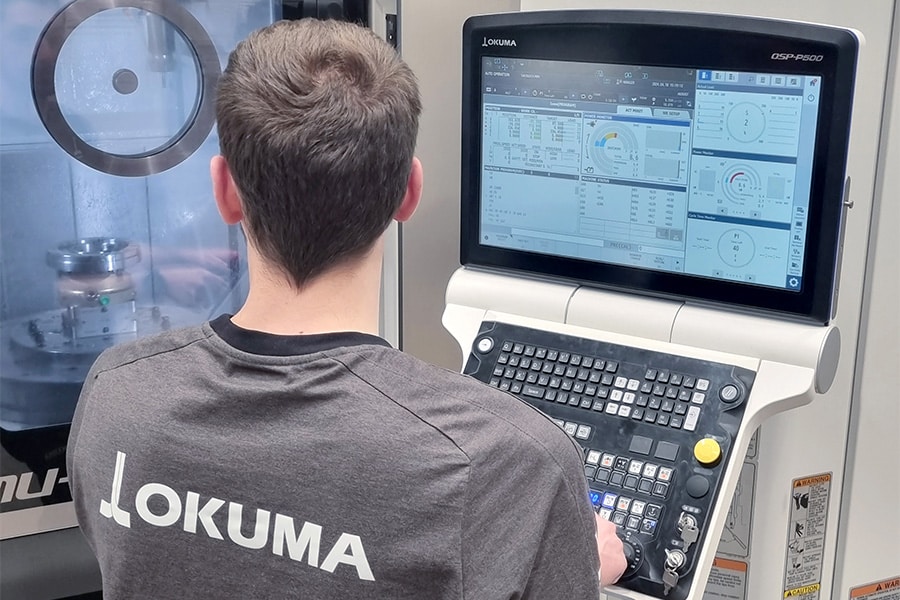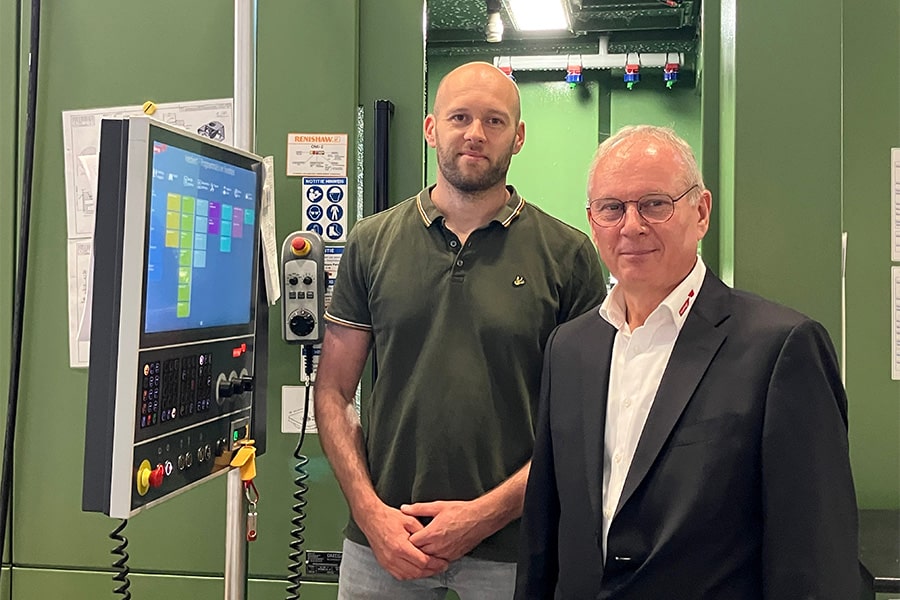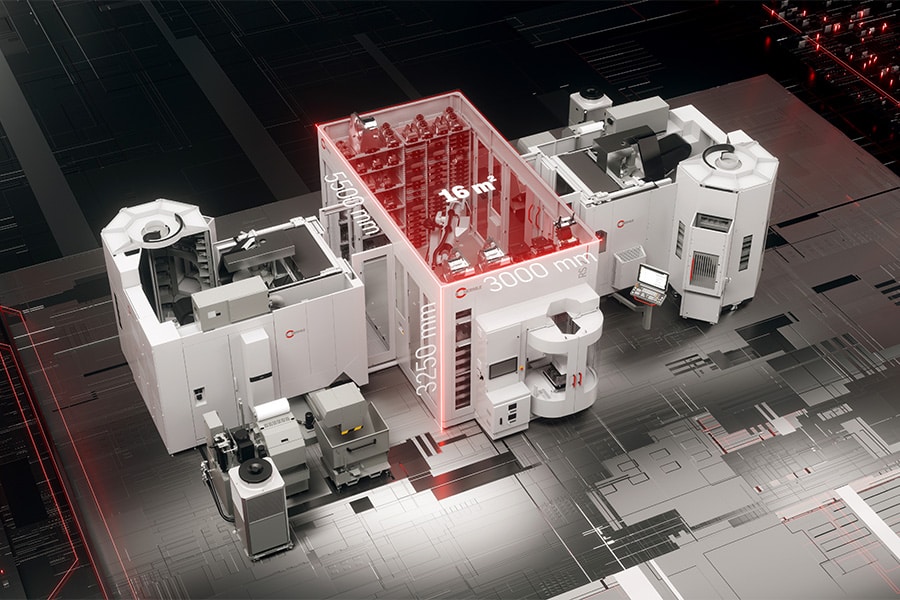
Precision work of the highest order
For decades, the name Capaul has been synonymous with precision work of the highest order. Not only in the wide region around Eupen, with its eye for quality, the playing field of this specialist in precision mechanics extends far beyond the Belgian borders. Two elements play a key role in this success story. The level of knowledge and experience of its operators and the quality and reliability of machines. It should therefore come as no surprise that the shop floor turns orange.
A passion for precision. It is the common thread throughout Capaul's history that stretches back more than 150 years. What began as a forge for woodworking tools has today grown into a company with a 6,000 m² state-of-the-art production space that meets the highest standards. More than 2,000 m² is even air-conditioned. And that is necessary too for the promise Capaul keeps for its customers. Freshman CEO Tom Henkes: "The big growth has come since the 1990s with certification for aviation. Today, every three seconds somewhere in the world a plane takes off with Capaul components on board. You can only achieve that by controlling the entire process down to the last detail. Thanks to climatization, machines can run stably down to the µm level." This approach enables Capaul to deliver turning and milling work within the tightest tolerances, even for larger dimensions and series. It makes the Eupen company a welcome supplier to aviation, rail, medical, mechanical engineering and the energy sector, among others.

Standardized on Mazak
Machinery obviously plays a major role in achieving those accuracies. Traditionally, Capaul has counted on Mazak machines for that. "We believe very strongly in the quality, reliability and simplicity of control," summarizes Henkes. About five years ago, a turnaround in orders began to emerge. Henkes: "To remain competitive in Belgium, you have no choice but to invest in automation. Back in '89 the first CNC machine arrived here. A Mazak with dialog control. In recent years we have caught up in automation with the purchase of several Integrex machines with pallet automation. A path that we are now moving further and further down towards extensive automation and digitalization. The starting point is to arrive at a process that is as stable as possible where everything, from entering the material to selecting the tools to removing the finished pieces, can be done automatically. The machine reads in the data, loads all the material and starts working in one setup. The pieces thus come off the machine completely perfect in one pass."

Steering with artificial intelligence
That's just the beginning. The intention is to also take steps in automating the programming of the pieces. "Based on all CAM data of pieces and tools, we want to arrive at a digital quotation in which the production of the pieces is simulated. Entering simple coordinates or parameters is then up to the software. Our programmers can focus on more delicate work or checking the critical dimensions of a piece. With Smooth AI, Mazak has clearly taken that path as well and we are finding the right support." A line that also continues on the shop floor. Capaul does not need button pushers, but seeks operators who are seasoned in their craft. "Automation will only increase the role of employees in value. After all, they will then have to do the real thinking." Capaul therefore also has its own training workshop. On Mazak's new CV5-500, for example, they are already getting the hang of five-axis machining. "It is important from the beginning to grind in the right way of thinking and already familiar with automatic programming," says Henkes.

Service makes the difference
For Henkes, the key to the success of his partnership with Mazak is service. "Other manufacturers also have decent machines, but what matters is that when a breakdown occurs, a technician is there within 24 hours. If it's purely a spare part, it's even there by the afternoon. What good is a machine that can work 1% faster if I have to wait a week for it in case of a breakdown. On top of that, with Mazak we can really count on reliable machines. One of the first ones we bought is still running on the shop floor with the accuracy it arrived with on the first day. That says a lot," Henkes concludes.



